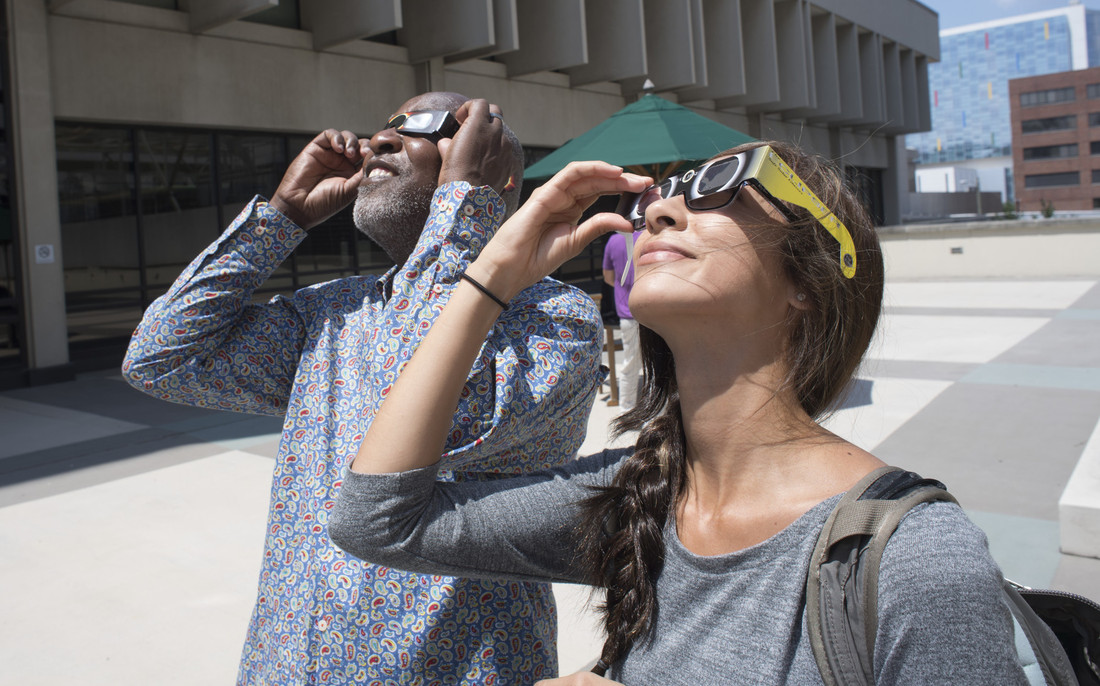by Nathan Anderson
The moon will briefly block out the sun, causing a total solar eclipse on Monday, April 8th, 2024. Terri Call, OD, associate professor, warns that unprotected viewing of the solar eclipse can damage your eyes.
“It’s not safe to look directly at the sun without specialized eye protection for solar viewing,” Call said,” Glasses should be marked as meeting ISO 12312-2 transmission for both direct viewing and looking at the sun through a telescope. Another way to watch is to view the solar eclipse with a pinhole camera.”
The American Optometric Association has provided a fun DIY pinhole eclipse projector template!
“There are two dangers to a solar eclipse,” Call said. “Those being the light we can see and the light we cannot see. The cornea and the eye's internal lens act as a natural magnifying glass, and when looking at the sun, create a focused burning point that can harm the retina and lead to issues like solar retinopathy.”
According to the American Optometric Association, symptoms of an eye injury following improper viewing of an eclipse include loss of central vision, distorted vision and altered color vision. These symptoms should be evaluated immediately to avoid potentially severe complications, including vision loss.
UAB Eye Care doctors are on call 24/7 should the need for emergency care arise.
Birmingham will begin seeing the eclipse at 12:40pm CST. The city is expected to have 86% blockage, with the solar eclipse reaching its peak blockage of the sun in the area at 2pm CST.
